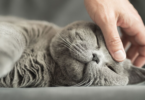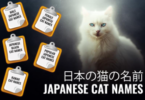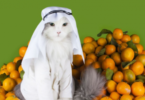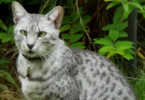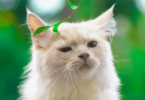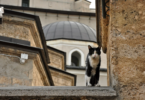The allure of Turkish cats transcends their captivating beauty. Turkish breeds, like the Turkish Angora and Turkish Van, boast not only stunning looks but also a rich history intertwined with the cultural tapestry of their homeland. This legacy extends to the enchanting world of Turkish cat names, offering a treasure trove of options steeped in meaning, mythology, and everyday life.
This comprehensive guide delves into the fascinating realm of Turkish cat names, serving as your compass to navigate the diverse and delightful options for your feline friend. We’ll explore the cultural significance behind these names, delve into historical references, and provide a plethora of suggestions categorized by meaning, appearance, and personality.
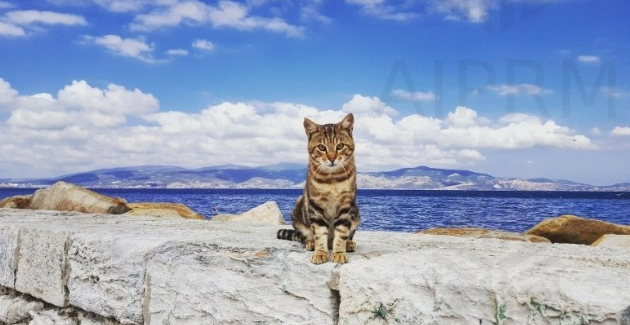
A Journey Through Turkish Culture: The Inspiration Behind the Names
Turkey, boasting a vibrant history that bridges continents and eras, offers a fertile ground for unique and evocative cat names. Here’s a glimpse into the cultural influences that shape Turkish cat names:
- Mythology and Folklore: Turkish mythology brims with captivating creatures, powerful deities, and legendary heroes. Names like Aslan (meaning “lion” and referencing the courageous lion Aslan in C.S. Lewis’s Chronicles of Narnia, which draws inspiration from Turkish mythology) or Mavigöz (meaning “blue eye” and alluding to protective spirits) evoke a sense of wonder and connect your cat to a rich narrative tradition.
- Nature and Geography: Turkey’s breathtaking landscapes – from the majestic Taurus Mountains to the sparkling Aegean Sea – inspire a plethora of beautiful names. Kardelen (meaning “snowdrop” and referencing the delicate white flower), Bozca (meaning “ash grey” and reflecting the color of volcanic rock), or Marmara (referencing the Sea of Marmara) are just a few examples that capture the essence of Turkish nature.
- Language and Tradition: The Turkish language itself offers a wealth of options. Descriptive terms like Pamuk (meaning “cotton” for a fluffy white cat) or Yavru (meaning “cub” for a playful kitten) create a charming simplicity. Additionally, Turkish proverbs and expressions can be a source of unique names. For instance, “Kismet” (meaning “fate” or “destiny”) evokes a sense of serendipity for your new furry companion.
A Peek into History: Unveiling the Legacy of Turkish Cats
The history of Turkish cats is deeply intertwined with the cultural and social fabric of Turkey. Here’s a look at how the past influences the present when it comes to naming your feline friend:
- The Rise of the Ottomans: During the Ottoman Empire (1299-1922), cats held a revered position. Sultans often kept large catteries, and felines were revered for their pest control abilities. Names like Padişah (meaning “sultan”) or Saray (meaning “palace”) offer a regal touch, reminiscent of this period.
- Van Cats and Angoras: The Turkish Van and Turkish Angora breeds have a long and storied history. These breeds were prized possessions of royalty and wealthy merchants. Naming your cat after its breed – Vanli (meaning “from Van”) for a Turkish Van or Ankara (referencing the historic capital city) for a Turkish Angora – is a way to celebrate their heritage.
Unveiling the Treasures: A Categorized List of Turkish Cat Names
Now that we’ve explored the cultural and historical influences, let’s delve into the delightful world of Turkish cat names themselves! This list provides a variety of options categorized by meaning, appearance, and personality:
By Meaning
| Meaning | Turkish Name | Example Cat |
|---|---|---|
| Brave, Lion | Aslan | A bold and adventurous cat |
| Beautiful, Moon | Ayşe | A stunningly beautiful cat with captivating eyes |
| Graceful, Deer | Ceylan | A sleek and elegant cat |
| Clever, Wise | Zeki | A curious and intelligent cat |
| Strong, Mountain | Dağ | A sturdy and independent cat |
| Playful, Kitten | Yavru | A kitten brimming with energy |
| Gentle, Friend | Dost | A sweet and affectionate cat |
| Lucky, Fate | Kismet | A cat who unexpectedly entered your life |
| Peaceful, Sky | Gökyüzü | A calm and serene cat |
By Appearance
| Feature | Turkish Name | Example Cat |
|---|---|---|
| White Fur | Pamuk | A fluffy white cat |
| Black Fur | Karga | A sleek black cat |
| Grey Fur | Duman | A cat with smoky grey fur |
| Ginger Fur | Kızıl | A fiery ginger cat |
| Bi-colored Fur | Alaca | A |
By Appearance (continued)
| Feature | Turkish Name | Example Cat |
|---|---|---|
| Blue Eyes | Mavigöz | A cat with mesmerizing blue eyes |
| Green Eyes | Yeşilgöz | A cat with captivating green eyes |
| Odd Eyes (one blue, one green) | Gözdeş | A cat with striking heterochromatic eyes |
| Long Hair | Uzun | A cat with flowing, luxurious fur |
| Short Hair | Kısa | A cat with sleek, short fur |
By Personality
| Personality | Turkish Name | Example Cat |
|---|---|---|
| Playful, Energetic | Şimşek (meaning “lightning”) | A cat who loves to zoom around the house |
| Curious, Inquisitive | Meraklı | A cat who’s always investigating its surroundings |
| Cuddly, Affectionate | Sevecen | A cat who loves to cuddle and purr |
| Independent, Aloof | Maviş (meaning “blue”) | A cat who enjoys its own company |
| Talkative, Vocal | Mırıldak (meaning “to hum”) | A cat who frequently vocalizes |
| Gentle, Patient | Tatlı (meaning “sweet”) | A cat who’s calm and tolerant |
Beyond the List: Additional Tips for Choosing a Turkish Cat Name
- Consider your cat’s personality: Observe your cat’s behavior and temperament. Does it have a regal air, a playful spirit, or a gentle demeanor? Choose a name that reflects its unique personality.
- Keep it short and sweet: Cats respond best to short, easy-to-pronounce names with clear syllables. Aim for one or two syllables for maximum effectiveness.
- Think about pronunciation: Some Turkish sounds might be unfamiliar to non-Turkish speakers. Choose a name you feel comfortable saying and that rolls off the tongue easily.
- Make it a positive experience: When calling your cat’s name, use a gentle and affectionate tone. Associate the name with positive experiences like feeding or playtime.
The Magic of Turkish Cat Names: FAQs
Q: Where can I find more resources on Turkish cat names?
A: Several online resources offer Turkish cat name lists. Additionally, consider exploring Turkish baby name websites, as many names translate well for cats.
Q: Can I use a Turkish word that isn’t necessarily a name for a cat?
A: Absolutely! Turkish offers a wealth of descriptive words that can make charming cat names. For instance, “Yıldız” (meaning “star”) or “Pırlanta” (meaning “diamond”) create unique and beautiful options.
Q: What if I can’t decide on a single name?
A: Don’t worry! It’s perfectly acceptable to use a nickname alongside a more formal Turkish name. This gives you flexibility and allows the name to evolve as you get to know your cat’s personality.
Conclusion
The enchanting world of Turkish cat names offers a treasure trove of options, steeped in history, culture, and beauty. From names inspired by mythology to those reflecting your cat’s appearance and personality, these unique choices create a special bond between you and your feline companion. So, delve into this delightful world, explore the possibilities, and find the perfect Turkish name that celebrates the magic of your cat.
Additional Resources:
- Turkish Baby Names [URL non valide supprimée] (This website offers a comprehensive list of Turkish names many of which can be adapted for cats)
- Basics of Turkish Pronunciation (A helpful guide to mastering the sounds of the Turkish language)

